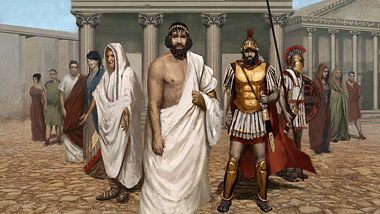
Antipater (c. 399-319 BCE) was a Macedonian statesman and loyal lieutenant of both Alexander the Great and his father Philip II of Macedon. As a regent in Alexander's absence, Antipater subdued rebellions and mollified uprisings, proving his unwavering loyalty for more than a decade. Unfortunately, a serious disagreement between the two led to a once trusted commander being implicated in the suspected poisoning of one of history's greatest leaders.
Early Career
Antipater had always been considered a trustworthy commander, representing Philip at Athens in 346 BCE. Following the Battle of Chaeronea in 338 BCE, he was entrusted with the task of accompanying the young Alexander in taking the ashes of fallen Athenians killed in battle to the city. After Philip's assassination by the disgruntled Pausanias, a disagreement arose among the nobility as to who was the rightful heir to the throne of Macedon. At a meeting presided by Antipater, several nobles voiced support for Amyntas, the son of Philip's brother Perdiccas. Some of these men disliked Alexander only because his mother was not a true Macedonian. However, Antipater and fellow commander Parmenio, who was in Asia Minor at the time, remained loyal to Alexander, so with the urging of his doting mother, Olympias, Alexander became king at the age of 20.
The first few years of his reign were not easy for the young king. Following his father's death, Alexander found not only his ability but also the strength of Macedon's control over Greece threatened. While the young king and his army traveled northward to secure Thrace in 335 BCE, Antipater remained in Macedon, serving as his deputy. While in Thrace, word of Alexander's supposed death made its way to the Greek city of Thebes and they revolted. When they heard of the approaching the Macedonian army, they assumed, incorrectly, that it was under the command of Antipater. Wrong! It was Alexander, and the city would suffer. The rest of Greek city-states - except for Sparta - quickly realized the true strength of Alexander and submitted willingly to his leadership.
Alexander's Regent
Now, with most of Greece under Macedonian control, the young king turned his sights eastward to Persia and made plans to cross the Hellespont into Asia Minor, finally fulfilling his father's life-long dream. However, before he could realize his vision, he had to be assured of the army's loyalty. Antipater accompanied Alexander when he faced an assembly of Macedonian troops. Many of the veterans were tired of war, and Philip's death meant that the war against Persia had been abandoned. As the young king stood before them and cried, he promised each of them glory and riches. To a man, they swore their loyalty. Both Antipater and Parmenio, however, urged Alexander to reconsider and wait until an heir was born to secure the throne. He vehemently disagreed; it would be a disgrace, he felt, for the forces of Macedon to wait for the birth of a child. To maintain authority in his absence, he left Greece and his beloved Macedon in the capable hands of Antipater as hegemon. In 334 BCE Alexander gathered his forces and crossed into Asia Minor. The young king would never return.
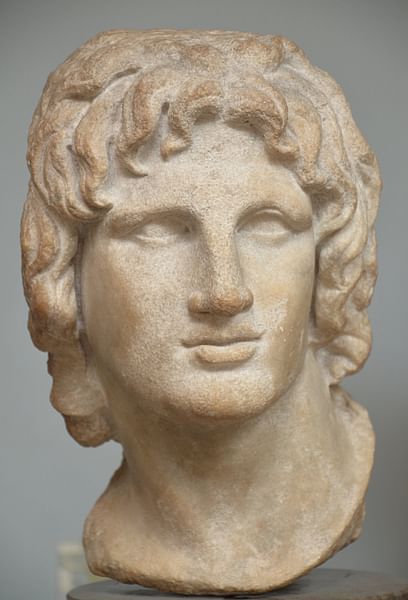
Aside from his role as hegemon or regent, Antipater was designated the headmaster of the School of Pages as well as assigned the daunting task of handling the finances of both the military and naval forces. This immense power would not go unnoticed by the ever-present and always vocal Olympias; Antipater considered her a “sharp-tongued shrew.” Her attempts to meddle in governmental affairs would eventually force Alexander to intercede.
Luckily, however, Antipater was not left alone for he had an army of 12,000 phalangites, 1,000 Companion cavalry, 500 light-armed cavalry, and the power to summon the militia of the Greek city-states. Despite the constant demand for reinforcements, Antipater was able to amass a total of over 40,000 infantry and cavalry, and he would soon need it. Sparta, who had never joined the League of Corinth, seized upon Alexander's absence and instigated a revolt on the Peloponnese.
In 331 BCE, about the time Alexander was preparing to meet Darius at Gaugamela, King Agis III of Sparta joined with forces from Elis, Arcadia, and Achaea, and declared war on Macedon. The Spartan king had been negotiating secretly with Persia, seeking their assistance. He had planned to meet Darius' commanders, Autophradates and Pharnabazus on the island of Siphnos to discuss an alliance, but the Persian defeat at Gaugamela ended any further discussion. Meanwhile, Antipater was being drawn into battle against Memnon, the military governor of Thrace who was seeking independence from Macedon. Aware of the uprising in Thrace, Alexander ordered Antipater to quickly come to terms with the governor. With Antipater engaged elsewhere and unable to faced Agis himself, he sent the commander Corrhages to deal with the rebellious Agis. Unfortunately, Corrhages was defeated and killed.
With little alternative, Antipater reached an agreement with Memnon and headed southward. Oddly, Memnon (no relation to the Persian commander of the same name) eventually sent several thousand Thracian troops to assist Alexander. Antipater and Agis met at Megalopolis, a city north of Sparta. The Macedonian commander was victorious, wiping out all Spartan resistance. The defeated Spartan king was carried off the field of battle by his troops, dying from a spear wound. Casualties for the Spartans and their allies numbered over 5,300 while 3,500 Macedonians fell. When Alexander heard of the victory, he considered it insignificant.
Conflict with Olympias
Although Antipater and Alexander had their differences, nothing compared to the intense dislike that existed between Antipater and Olympias. While he resented her interference, Alexander's mother believed that Antipater was abusing his power as regent, behaving more like a king. Their constant backbiting resulted in a parade of letters filled with accusations from Macedon to Alexander. Of course, the king was torn between his love for his mother and his respect of Antipater. In his Campaigns of Alexander, historian Arrian wrote, "Indeed, the stories of her behavior gave rise to a much-quoted remark of Alexander's, to the effect, that she was charging him a high price for his nine months lodging in her womb" (368).
Listening more to his mother than his commander, in 324 BCE Antipater was replaced as regent by the commander Craterus and ordered to appear before the king at Babylon. Antipater resented the order, considering it a death warrant. Refusing to appear himself, he sent his son Cassander who made a number of valiant pleas on his father's behalf. Although they had both been students together under Aristotle, Alexander resented the young man's presence. The tension between the two increased when Cassander unknowingly laughed at seeing a number of Persians prostrating themselves before the king - an old Persian custom called proskynesis. Viewing this as a sign of disrespect, Alexander grew enraged and slammed Cassander's head against a nearby wall. The incident would haunt him for the remainder of his life. Years later, whenever Cassander saw a statue or painting of Alexander, he would faint. To some, the incident would be seen as insignificant, just another outburst by Alexander, if not for what would happen afterwards.
Alexander's Death
While in Babylon, Alexander became extremely ill after a late-night party - an illness from which he would never recover. On June 10, 323 BCE, the great Alexander died. A debate as to the cause exists to this day. Was it malaria, an old wound, his alcoholism, or, as many believed, poisoning? Rumors surrounding this latter cause brought the name of Antipater into the discussion. Did he willingly participate in a conspiracy to poison Alexander? Did he order his son Iolaus, the cupbearer to the king, to administer the fatal dose, for was it not Iolaus's lover who had invited the king to the party?
Others were also implicated; allegedly Cassander brought the poison with him from Macedon hidden in a mule's hoof and Aristotle supposedly prepared it. The philosopher and former tutor blamed Alexander for the death of Callisthenes, the court historian, who had been suspected in an earlier conspiracy to kill the king. Not everybody was convinced of these accusations, though. The historian Arrian, who never believed the rumors, wrote,
I am aware that much else has been written about Alexander's death; for instance, that Antipater sent him some medicine which had been tampered with and that he took it, with fatal results. Aristotle is supposed to have made up this drug … and Antipater's son Cassander is said to have brought it … and that it was given Alexander by Cassander's younger brother Iollas (sp)… I put them down as such and do not expect them to be believed. (394 -395)
The historian Plutarch wrote in his Greek Lives of Olympias' reaction to the incident stating that on the strength of information she received five years after her son's death she had a “number of men put to death” and scattered the exhumed remains of Iolaus's body because it was he who had administered the poison (380).
The Lamian War
Alexander died without naming an heir or successor. Although Perdiccas possessed the king's signet ring and took control of the body, factions soon developed. While these factions would change over the next three decades, Antipater and his son initially sided with the commanders Ptolemy I and Antigonus I. When each commander claimed part of Alexander's empire for himself, Antipater took control of Macedon. However, peace at home would not remain for long. Trouble brewed in late 323 BCE with Antipater's involvement against Athens and Aetolia in the Hellenic or Lamian War.
The war was initially caused by Leosthenes, an Athenian who despite being raised in Macedon detested the Macedonians. Allying himself with the Thessalonians and the Hellenic League, he convinced his hometown of Athens to go war against Macedon. The coalition almost defeated Macedon. An excellent commander in his own right, Leosthenes cornered Antipater at Lamia in Thessaly. Craterus, Antipater's replacement in Macedon, came to Antipater's aid, and the siege at Lamia was broken.
In the subsequent battle at Crannon in 322 BCE, the Athenian commander was killed, forcing an end to the war. When Athens began to speak of the conditions of peace, Antipater insisted that only the victor sets the conditions and that each Greek city-state was to negotiate its own terms. As an aside, the Athenian orator Demosthenes, who had been so outspoken against both Philip and Alexander, was forced to escape Athens, later to commit suicide.
Death & Legacy
Antipater died in 319 BCE at the age of 80. His son Cassander, as always, remained at his side. Unfortunately, Cassander was not named the heir. Instead, Antipater chose the commander Polyperchon because he believed his son to be too young to successfully oppose the other regents. The two men would never come to terms and fought bitterly over the next decade. Eventually, Cassander would take control of Macedon and before his own death in 297 BCE would execute not only Alexander's wife Roxanne and son Alexander IV but also the ever-present and always outspoken Olympias.
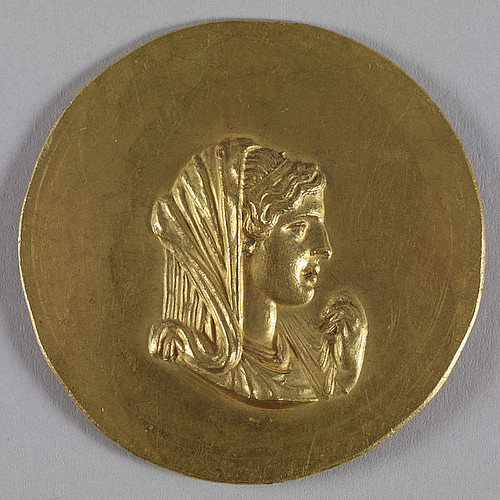
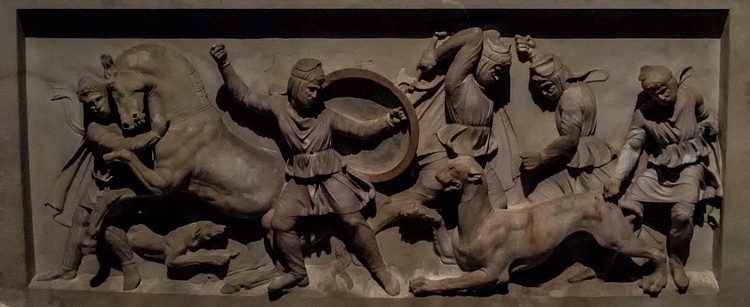

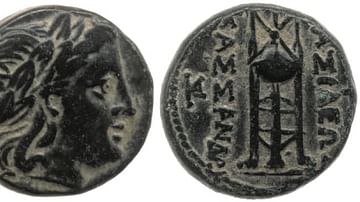
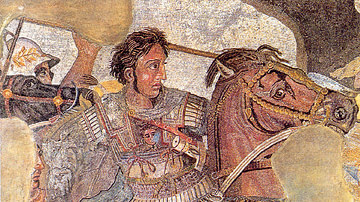
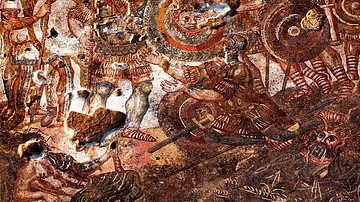
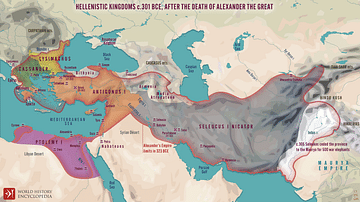
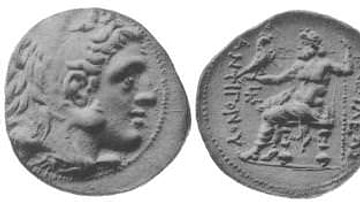


![A History of the Hellenistic World: 323 - 30 BC [Blackwell History of the Ancient World Ser.]](https://m.media-amazon.com/images/I/41DgtB7EF4L._SL160_.jpg)


